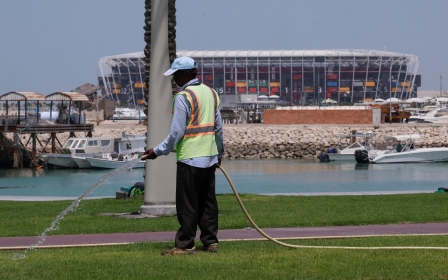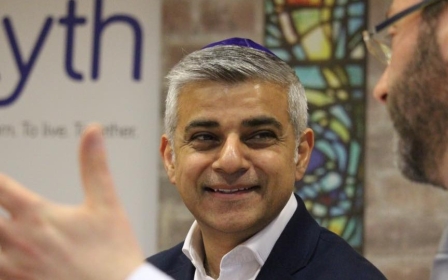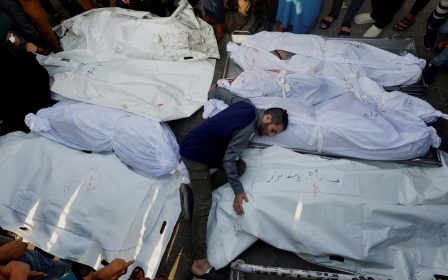Israel-Palestine war: Israel kills family of Gaza peace activist Ahmed Abu Artema in air strike
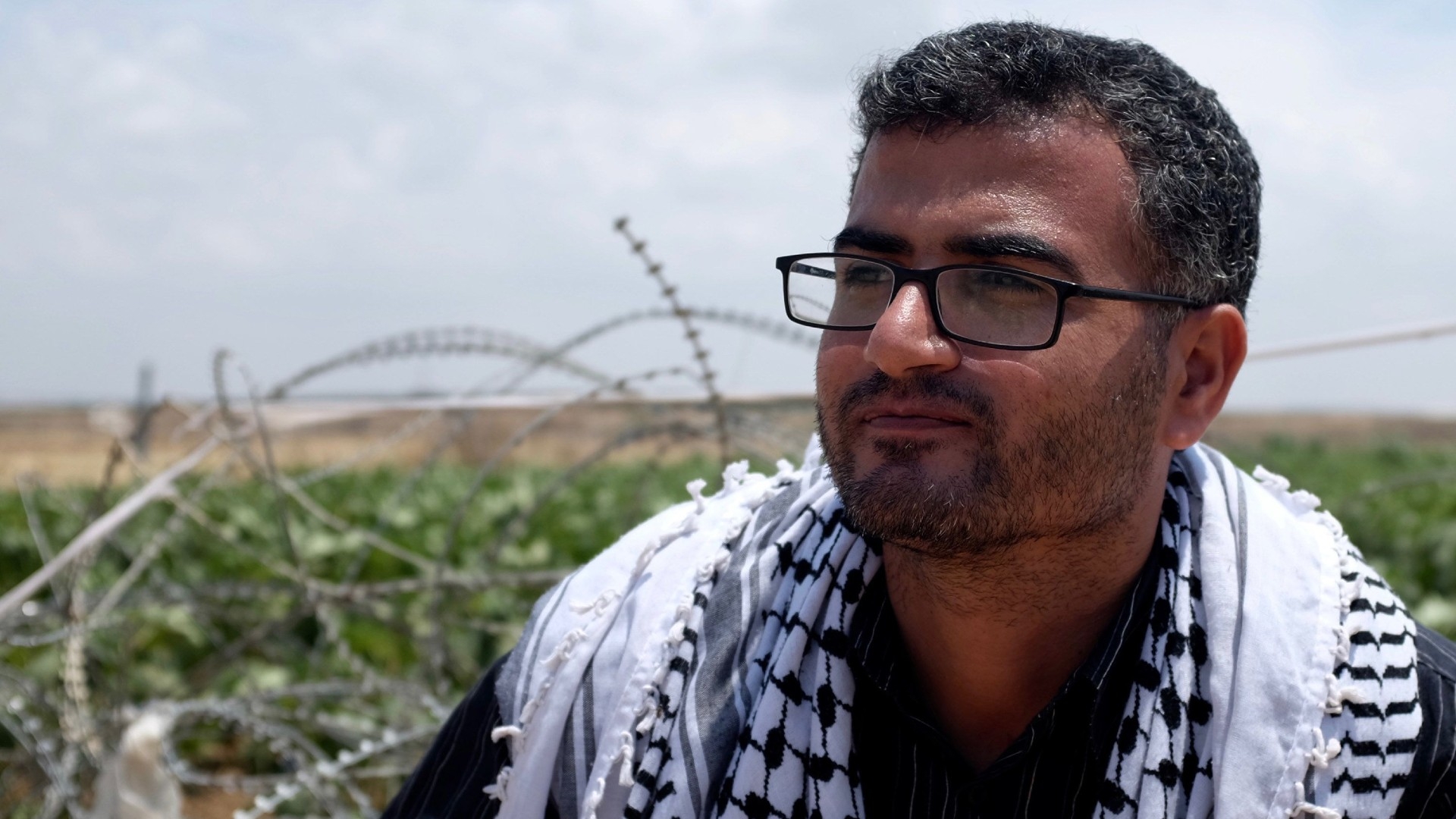
The Palestinian poet and writer Ahmed Abu Artema, the man widely credited for inspiring Gaza’s Great March of Return in 2018, has lost five members of his family in an Israeli air strike.
Abu Artema was also seriously injured in the attack on 24 October, suffering second-degree burns, but is now in a stable condition. His son, Abdullah, two of his brothers and mother-in-law were among those killed.
Abu Artema wrote for Middle East Eye just over a week ago warning that “terrible massacres against civilians" by Israel were not a mistake but were rather deliberate and premeditated
“Israel is always proud of its technological progress. It possesses smart weapons that can accurately identify targets. Therefore, destroying civilian homes and killing thousands of people can only be an intentional decision,” he wrote.
The activist's home was one of many targeted in recent days despite being in the southern region of the Gaza Strip, where people from the north were ordered to go by the Israeli army.
Since the start of the conflict, Israel has attacked all areas of besieged Gaza meaning no area is safe for its residents.
Commenting on the targeting of Abu Artema's family, Neta Golan, a co-founder of the International Solidarity Movement (ISM) and Return Solidarity, said: “In the weeks leading up to the attack, Ahmed had used his voice to call for global protests to stop Israel’s genocide and criminal bombing campaign of the Gaza Strip.
Follow Middle East Eye's live coverage for the latest on the Israel-Palestine war
“It was Ahmed’s words in 2018 that inspired thousands of Gazans to march unarmed towards the fence besieging the Gaza ghetto, to demand their right to return to the lands from which they’d been expelled.
"The Israeli occupation forces killed Ahmed’s family because Israel feared the power of his words.”
'The Israeli occupation forces killed Ahmed’s family because Israel feared the power of his words'
- Neta Golan, International Solidarity Movement
Since 7 October, Israeli air strikes have killed at least 25 Palestinian journalists. Family members of prominent journalists have also been killed.
On Wednesday, an Israeli air strike killed the wife, son, and daughter of Al Jazeera correspondent Wael al-Dahdouh.
Days before Abu Artema's home was attacked, he said: “This did not start on 7 October. Unfortunately, the world has been blind to the suffering of the Palestinians for decades.
"Only when Israel lost people did the outside world pay attention here. What’s happening now in Gaza is exactly the same thing Israel started in 1948.
"The Israeli government is not targeting Hamas. As all of us can see on the TV and internet, the vast majority of the targets in Gaza are civilians, neighbourhoods, hospitals, churches and mosques,” he added.
Great March of Return
In 2018, after more than a decade of the siege on Gaza, Ahmed had an idea to bring international attention to the situation and give Palestinians a sense of agency.
The Great March of Return was an important grassroots initiative by Palestinians to peacefully break the Israeli siege of the territory.
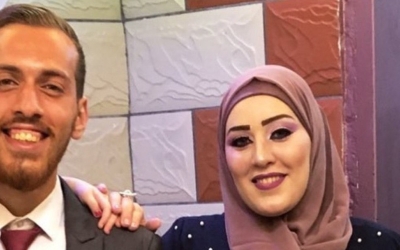
Amongst the demands was the return of Palestinian refugees based on principles of international law.
Most of the 2.3 million Palestinians in Gaza are the descendants of refugees expelled from their homes in 1948. Many live just a few kilometres from their villages of origin.
Tens of thousands of people responded to the call, marching under the banner of return, but also in response to decades of occupation and the ongoing siege of Gaza.
As Great March of Return organiser Ahmed Abu Artema asked: "What if 200,000 demonstrators marched peacefully and broke through the fence east of Gaza and entered a few kilometres into the lands that are ours, holding the flags of Palestine and the keys to return, accompanied by international media, and then set up tents inside and established a city there?"
The answer to those peaceful protests was swift by Israel. More than 200 Palestinians were killed by Israeli snipers and thousands more suffered life-changing injuries.
A UN report found that "Israeli soldiers committed violations of international human rights and humanitarian law. Some of those violations may constitute war crimes or crimes against humanity."
Middle East Eye propose une couverture et une analyse indépendantes et incomparables du Moyen-Orient, de l’Afrique du Nord et d’autres régions du monde. Pour en savoir plus sur la reprise de ce contenu et les frais qui s’appliquent, veuillez remplir ce formulaire [en anglais]. Pour en savoir plus sur MEE, cliquez ici [en anglais].


